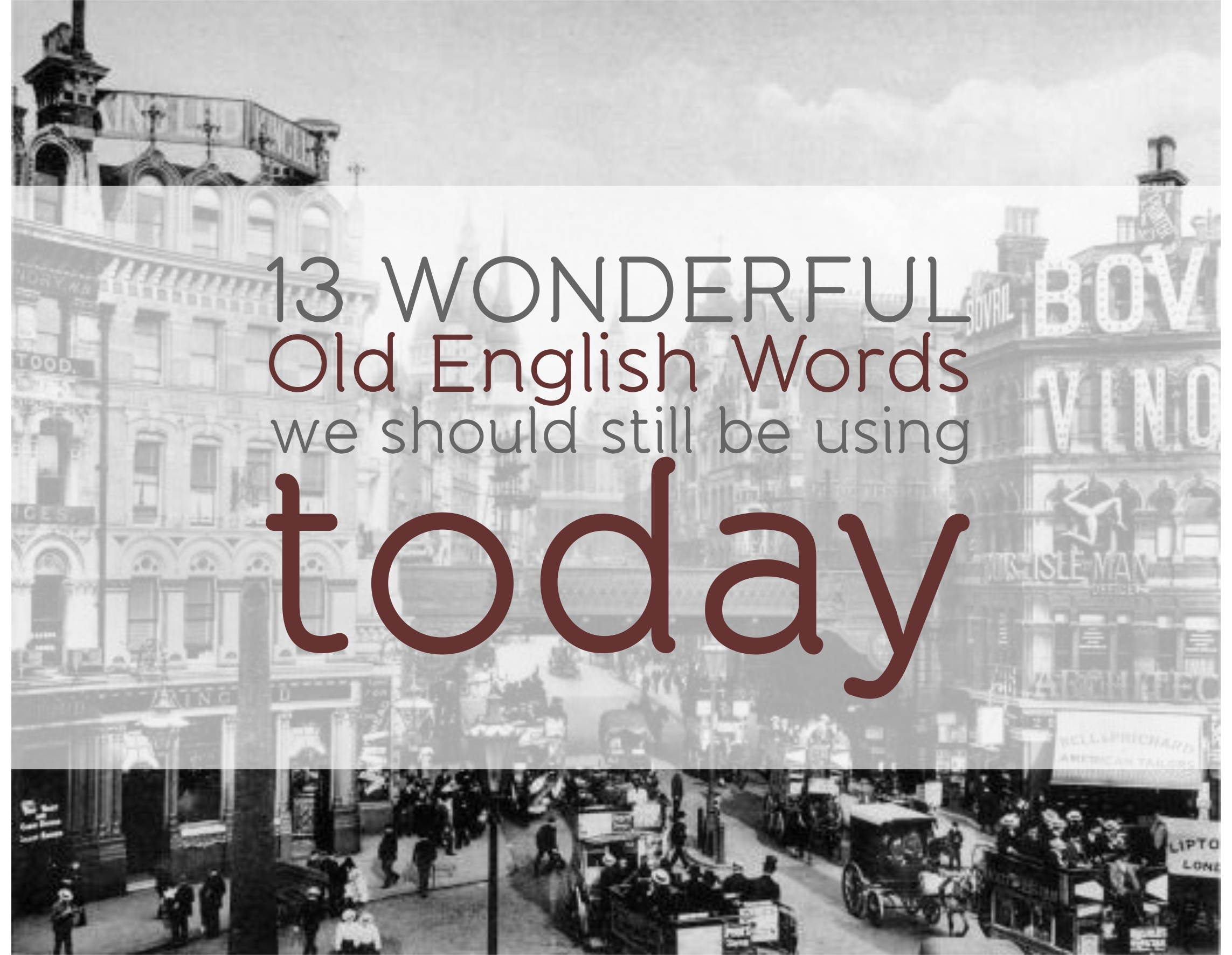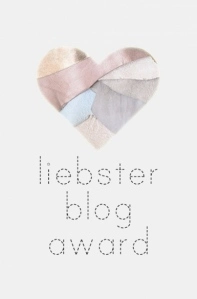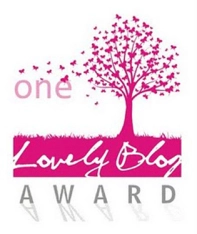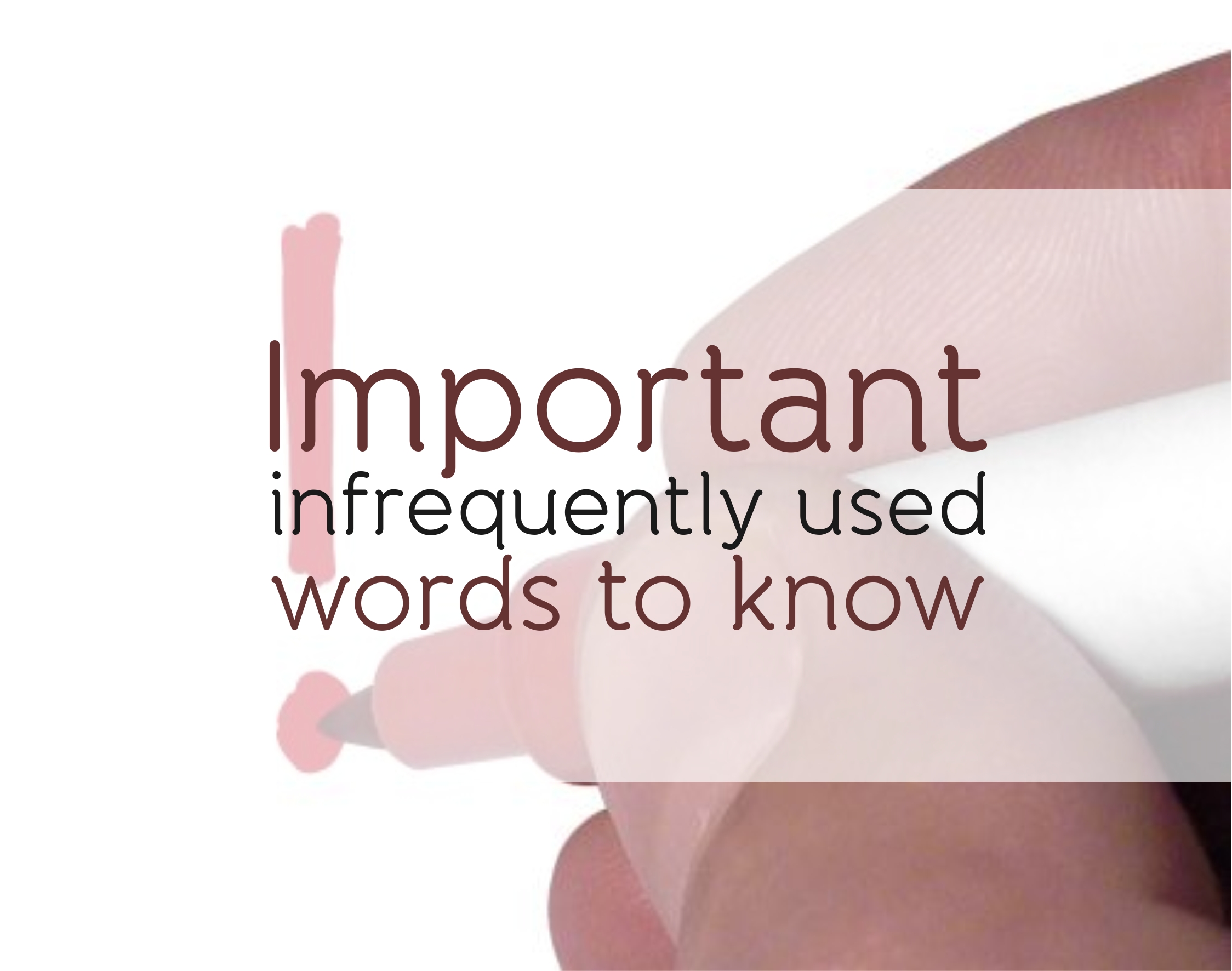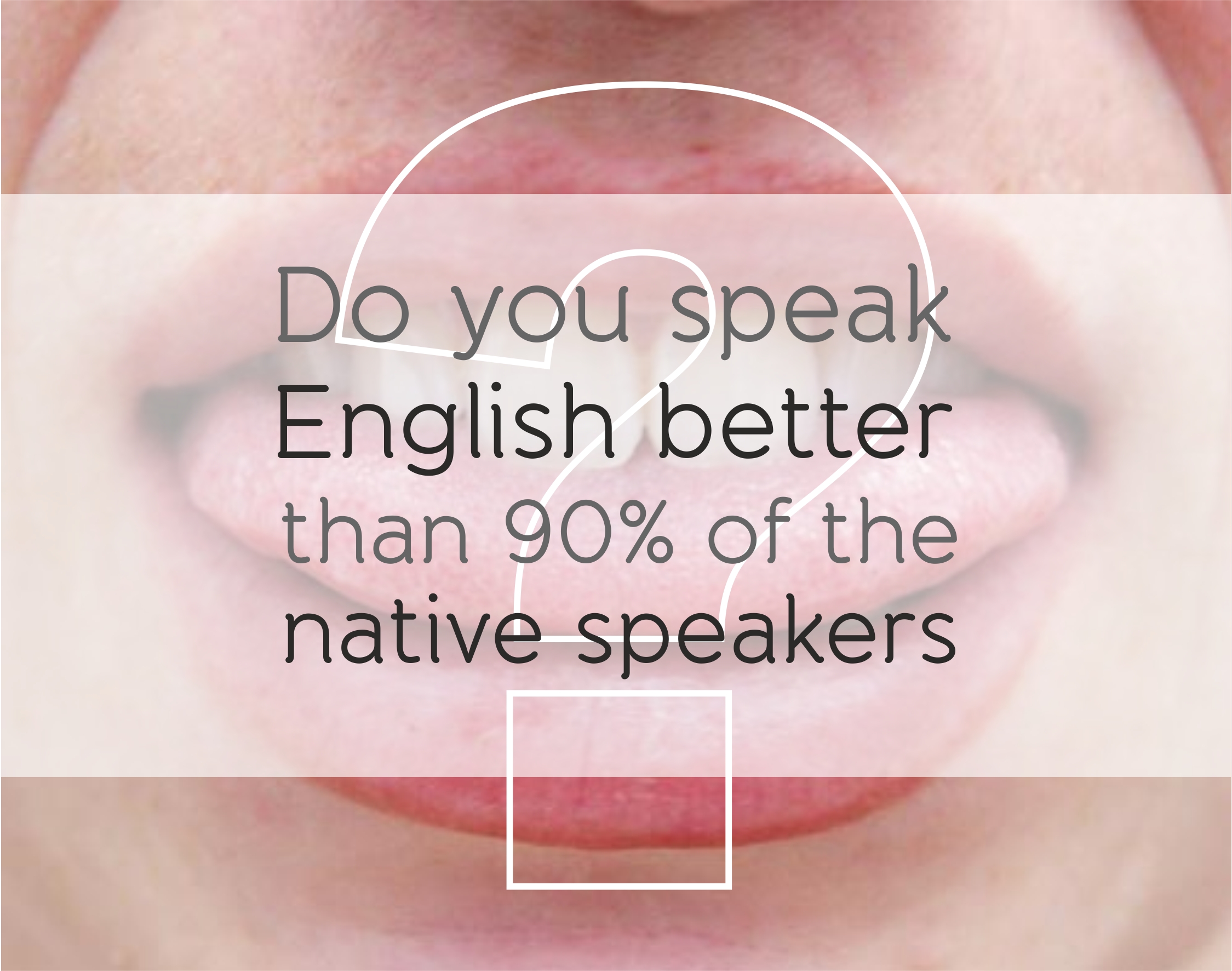Simple but Intelligent Word Choices
#10: Lucid
#9: Austere
#8: Volatile
#7: Stoic
#6: Caustic
#5: Maudlin
#4: Lurid
#3: Glib
#2: Cavalier
#1: Demure
Read more…
C’mon, Get Happy: 7 Happy Expressions Defined
Happy as a clam
 Cute as they are, clams are not the most emotive creatures in the animal kingdom, so why do we say happy as a clam? Some have speculated it’s because a partially opened clam shell resembles a smile. But the expression is a shortening of the longer happy as a clam in mud at high tide or happy as a clam at high water, both of which were in usage by the mid-1800s and serve to mean “happy as a critter that’s safe from being dug up and eaten.” The longer expressions evoke a sense of relief more than the shorter happy as a clam, which is widely used to mean “extremely happy.”
Cute as they are, clams are not the most emotive creatures in the animal kingdom, so why do we say happy as a clam? Some have speculated it’s because a partially opened clam shell resembles a smile. But the expression is a shortening of the longer happy as a clam in mud at high tide or happy as a clam at high water, both of which were in usage by the mid-1800s and serve to mean “happy as a critter that’s safe from being dug up and eaten.” The longer expressions evoke a sense of relief more than the shorter happy as a clam, which is widely used to mean “extremely happy.”Happy hour
 People were using the word happy to mean “intoxicated” as early as the mid-1600s, alluding to the merrymaking effect of alcohol. But the phrase happy hour didn’t catch on until the early 1900s. This expression originally referred to a time on board a ship allotted for recreation and entertainment for a ship’s crew. Nowadays the expression refers to cocktail hour at a bar, when drinks are served at reduced prices. This definition caught on around the era depicted in the well-lubricated offices of TV’s Mad Men.
People were using the word happy to mean “intoxicated” as early as the mid-1600s, alluding to the merrymaking effect of alcohol. But the phrase happy hour didn’t catch on until the early 1900s. This expression originally referred to a time on board a ship allotted for recreation and entertainment for a ship’s crew. Nowadays the expression refers to cocktail hour at a bar, when drinks are served at reduced prices. This definition caught on around the era depicted in the well-lubricated offices of TV’s Mad Men.Slaphappy
 Around the time of World War II, the word happy began appearing in words to convey temporary overexcitement. Slaphappy is one of these constructions, suggesting a dazed or “happy” state from repeated blows or slaps, literal or figurative. Slaphappy can mean “severely befuddled” or “agreeably giddy or foolish” or “cheerfully irresponsible.”
Around the time of World War II, the word happy began appearing in words to convey temporary overexcitement. Slaphappy is one of these constructions, suggesting a dazed or “happy” state from repeated blows or slaps, literal or figurative. Slaphappy can mean “severely befuddled” or “agreeably giddy or foolish” or “cheerfully irresponsible.”Trigger-happy
 Much like slaphappy, the happy in trigger-happy indicates a kind of temporary mental overstimulation. But in this construction, happy means “behaving in an irresponsible or obsessive manner.” The term trigger-happy entered English in the 1940s with the definition “ready to fire a gun at the least provocation.” Over time, it has taken on figurative senses including “eager to point out the mistakes or shortcomings of others” and “heedless and foolhardy in matters of great importance.”
Much like slaphappy, the happy in trigger-happy indicates a kind of temporary mental overstimulation. But in this construction, happy means “behaving in an irresponsible or obsessive manner.” The term trigger-happy entered English in the 1940s with the definition “ready to fire a gun at the least provocation.” Over time, it has taken on figurative senses including “eager to point out the mistakes or shortcomings of others” and “heedless and foolhardy in matters of great importance.”Happy-go-lucky
 The word happy comes from the Old Norse happ meaning “chance” or “luck.” The wildcard nature of chance is reflected in the wide range of words that share this root. While the adjective happy-go-lucky, meaning “trusting cheerfully to luck” or “happily unconcerned or worried,” is widely used in positive contexts, its etymological cousin haphazard, carries a more negative connotation. The expression happy-be-lucky entered English slightly earlier than happy-go-lucky, but fell out of use in the mid-1800s.
The word happy comes from the Old Norse happ meaning “chance” or “luck.” The wildcard nature of chance is reflected in the wide range of words that share this root. While the adjective happy-go-lucky, meaning “trusting cheerfully to luck” or “happily unconcerned or worried,” is widely used in positive contexts, its etymological cousin haphazard, carries a more negative connotation. The expression happy-be-lucky entered English slightly earlier than happy-go-lucky, but fell out of use in the mid-1800s.Happy medium
 The phrase happy medium refers to a satisfactory compromise between two opposed things, or a course of action that is between two extremes. The notion of the happy medium is descended from an ancient mathematical concept called the golden section, or golden mean, in which the ratios of the different parts of a divided line are the same. This term dates from the 1600s, though is still widely used today.
The phrase happy medium refers to a satisfactory compromise between two opposed things, or a course of action that is between two extremes. The notion of the happy medium is descended from an ancient mathematical concept called the golden section, or golden mean, in which the ratios of the different parts of a divided line are the same. This term dates from the 1600s, though is still widely used today.Happy camper
 A happy camper is a person who is cheerful and satisfied, although the expression is frequently used in negative constructions, as in “I’m not a happy camper.” The word camper was widely used to refer to a soldier or military man when it entered English in the 1600s. It took on a more generic sense of one who camps recreationally in the mid-1800s, paving the way for the expression happy camper to emerge in the 1930s. Interestingly, use of the phrase happy camper skyrocketed in the 1980s.
A happy camper is a person who is cheerful and satisfied, although the expression is frequently used in negative constructions, as in “I’m not a happy camper.” The word camper was widely used to refer to a soldier or military man when it entered English in the 1600s. It took on a more generic sense of one who camps recreationally in the mid-1800s, paving the way for the expression happy camper to emerge in the 1930s. Interestingly, use of the phrase happy camper skyrocketed in the 1980s.Source and images
9 Ways to Laugh
1. Chortle
[chawr-tl]
 There are many different kinds of laughter. There’s the kind that leaves us clutching our bellies and gasping for air, and there’s kind that barely escapes our lips in restrained titters. The chortle, defined as “a gleeful chuckle,” falls somewhere in the middle. This term was coined by the beloved and whimsical wordsmith Lewis Carroll in his 1871 novel, Through the Looking-Glass, as a blend, or portmanteau, of the words chuckle and snort.
There are many different kinds of laughter. There’s the kind that leaves us clutching our bellies and gasping for air, and there’s kind that barely escapes our lips in restrained titters. The chortle, defined as “a gleeful chuckle,” falls somewhere in the middle. This term was coined by the beloved and whimsical wordsmith Lewis Carroll in his 1871 novel, Through the Looking-Glass, as a blend, or portmanteau, of the words chuckle and snort.2. Guffaw
[guh-faw, guh-]
 A guffaw is a loud, unrestrained burst of laughter; as a verb, it means “to laugh in a loud and boisterous manner.” The word is of Scottish origin and is thought to be imitative of the sound of such laughter. This word entered English in the early 1700s, around the same time as the similar but short-lived gawf, which means “to laugh loudly.”
A guffaw is a loud, unrestrained burst of laughter; as a verb, it means “to laugh in a loud and boisterous manner.” The word is of Scottish origin and is thought to be imitative of the sound of such laughter. This word entered English in the early 1700s, around the same time as the similar but short-lived gawf, which means “to laugh loudly.”3. Boff
[bof]
 When delivering a punch line, comedic performers want nothing more than to elicit a boff. This term, which means “a loud hearty laugh” in the above example, can also mean “to cause to be overcome with laughter” and “a joke or humorous line.” Boff arose in the entertainment industry in the mid-1900s, probably as a shortening of the word boffo meaning “a joke or punch line.” The similar-sounding Italian word buffo translates to “funny; comical” and shares a root with the term buffoon.
When delivering a punch line, comedic performers want nothing more than to elicit a boff. This term, which means “a loud hearty laugh” in the above example, can also mean “to cause to be overcome with laughter” and “a joke or humorous line.” Boff arose in the entertainment industry in the mid-1900s, probably as a shortening of the word boffo meaning “a joke or punch line.” The similar-sounding Italian word buffo translates to “funny; comical” and shares a root with the term buffoon.4.Titter
[tit-er]
 Far from a belly laugh or a hearty guffaw, a titter is a nervous or self-conscious laugh. To titter is “to laugh in a restrained, self-conscious, or affected way as from nervousness or in ill-suppressed amusement.” The origin of this word is unclear, but etymologists point to the Swedish term tittra meaning “to giggle,” as well as the word tittle meaning “to whisper” or, more specifically “to tell on or whisper gossip” as possible linguistic ancestors.
Far from a belly laugh or a hearty guffaw, a titter is a nervous or self-conscious laugh. To titter is “to laugh in a restrained, self-conscious, or affected way as from nervousness or in ill-suppressed amusement.” The origin of this word is unclear, but etymologists point to the Swedish term tittra meaning “to giggle,” as well as the word tittle meaning “to whisper” or, more specifically “to tell on or whisper gossip” as possible linguistic ancestors.5.Giggle
[gig–uhl]
 Before English speakers were tittering, they were giggling. A giggle is “a silly spasmodic laugh, especially with short, repeated gasps and titters, as from juvenile or ill-concealed amusement or nervous embarrassment.” The word is thought to be imitative in origin, echoing the sound of such laughter. Be careful not to confuse a case of the giggles with a case of the giggs; the latter has been used to describe a mouth disease in horses.
Before English speakers were tittering, they were giggling. A giggle is “a silly spasmodic laugh, especially with short, repeated gasps and titters, as from juvenile or ill-concealed amusement or nervous embarrassment.” The word is thought to be imitative in origin, echoing the sound of such laughter. Be careful not to confuse a case of the giggles with a case of the giggs; the latter has been used to describe a mouth disease in horses.6. Yuk
[yuhk]
 The origins of the word yuk, as in “The audience really yukked it up at the movie,” are a bit of a mystery. The similar-sounding yock, theater slang for “a laugh,” appeared in the US in the late 1930s. The comedic yuk, sometimes spelled yuck, meaning “to laugh or joke” appeared in the 1960s, right around the time that English speakers began using it as an exclamation of disgust.
The origins of the word yuk, as in “The audience really yukked it up at the movie,” are a bit of a mystery. The similar-sounding yock, theater slang for “a laugh,” appeared in the US in the late 1930s. The comedic yuk, sometimes spelled yuck, meaning “to laugh or joke” appeared in the 1960s, right around the time that English speakers began using it as an exclamation of disgust.7. Snicker
[snik-er]
 The word snicker, meaning “to laugh in a half-suppressed, indecorous or disrespectful manner,” has been around since the late 1600s. Like many words on this list, this one is thought to be imitative of the sound of laughter. It is one of several words beginning with s used to refer to laughter more mocking and suppressed in nature than gleeful and boisterous; others include snirtle, snigger, and sneer.
The word snicker, meaning “to laugh in a half-suppressed, indecorous or disrespectful manner,” has been around since the late 1600s. Like many words on this list, this one is thought to be imitative of the sound of laughter. It is one of several words beginning with s used to refer to laughter more mocking and suppressed in nature than gleeful and boisterous; others include snirtle, snigger, and sneer.8. Heehaw
[hee-haw]
 If the words we use to describe laughter are any indication, it would seem that a good episode of laughter reduces us to our animal natures, leaving us howling, snorting, and roaring. The term heehaw entered English in the early 1800s as a term for the loud braying sound a donkey makes and shortly thereafter picked up the sense of “a loud laugh reminiscent of a neighing horse.”
If the words we use to describe laughter are any indication, it would seem that a good episode of laughter reduces us to our animal natures, leaving us howling, snorting, and roaring. The term heehaw entered English in the early 1800s as a term for the loud braying sound a donkey makes and shortly thereafter picked up the sense of “a loud laugh reminiscent of a neighing horse.”9. Cachinnate
[kak–uh-neyt]
 If you (or someone you know) consistently turns heads with your stentorian laughter, you may be a cachinnator. To cachinnate is “to laugh loudly or immoderately.” The term is thought to be imitative in origin, and can be traced to the Latin cachinnāre. The similar-sounding cackle, meaning “to laugh in a shrill, broken manner” is etymologically unrelated to cachinnate. It first entered English as a word for the sound a hen or goose makes, later picking up a sense of “to laugh in a shrill, broken manner.”
If you (or someone you know) consistently turns heads with your stentorian laughter, you may be a cachinnator. To cachinnate is “to laugh loudly or immoderately.” The term is thought to be imitative in origin, and can be traced to the Latin cachinnāre. The similar-sounding cackle, meaning “to laugh in a shrill, broken manner” is etymologically unrelated to cachinnate. It first entered English as a word for the sound a hen or goose makes, later picking up a sense of “to laugh in a shrill, broken manner.”Source and images
168 Color terms in English

Compiled by Stephen Chrisomalis
This list contains 168 definitions of obscure colour terms using combinations of ‘normal‘ colours of the rainbow and descriptive adjectives; e.g. cardinal = deep scarlet red; russet = reddish brown. Note that most English speakers outside the U.S. spell colour with the added British ‘u’ rather than the American version color. Don’t worry if the colours (or colors) in your universe don’t match up with the definitions I’ve given for these words, though – I’ve been known to have skewed perceptions of reality … Read More…
Synonyms for the 96 most commonly used words in English

Amazing — incredible, unbelievable, improbable, fabulous, wonderful, fantastic, astonishing, astounding, extraordinary
Anger — enrage, infuriate, arouse, nettle, exasperate, inflame, madden
Angry — mad, furious, enraged, excited, wrathful, indignant, exasperated, aroused, inflamed
Character Feelings

You can describe your character’s feelings in more exact terms than just “happy” or “sad.” Check these lists for the exact nuance to describe your character’s intensity of feelings.
| Intensity of Feelings |
HAPPY | SAD | ANGRY | CONFUSED |
| High | Elated Excited Overjoyed Thrilled Exuberant Ecstatic Fired up Delighted |
Depressed Disappointed Alone Hurt Left out Dejected Hopeless Sorrowful Crushed |
Furious Enraged Outraged Aggrivated Irate Seething |
Bewildered Trapped Troubled Desperate Lost |
| Medium | Cheerful Up Good Relieved Satisfied Contented |
Heartbroken Down Upset Distressed Regret |
Upset Mad Annoyed Frustrated Agitated Hot Disgusted |
Disorganized Foggy Misplaced Disoriented Mixed up |
| Mild | Glad Content Satisfied Pleasant Fine Mellow Pleased |
Unhappy Moody Blue Sorry Lost Bad Dissatisfied |
Perturbed Uptight Dismayed Put out Irritated Touchy |
Unsure Puzzled Bothered Uncomfortable Undecided Baffled Perplexed |
| Intensity of Feelings |
AFRAID | WEAK | STRONG | GUILTY |
| High | Terrified Horrified Scared stiff Petrified Fearful Panicky |
Helpless Hopeless Beat Overwhelmed Impotent Small Exhausted Drained |
Powerful Aggressive Gung ho Potent Super Forceful Proud Determined |
Sorrowful Remorseful Ashamed Unworthy Worthless |
| Medium | Scared Frightened Threatened Insecure Uneasy Shocked |
Dependent Incapable Lifeless Tired Rundown Lazy Insecure Shy |
Energetic Capable Confident Persuasive Sure |
Sorry Lowdown Sneaky |
| Mild | Apprehensive Nervous Worried Timid Unsure Anxious |
Unsatisfied Under par Shaky Unsure Soft Lethargic Inadequate |
Secure Durable Adequate Able Capable |
Embarrassed |














